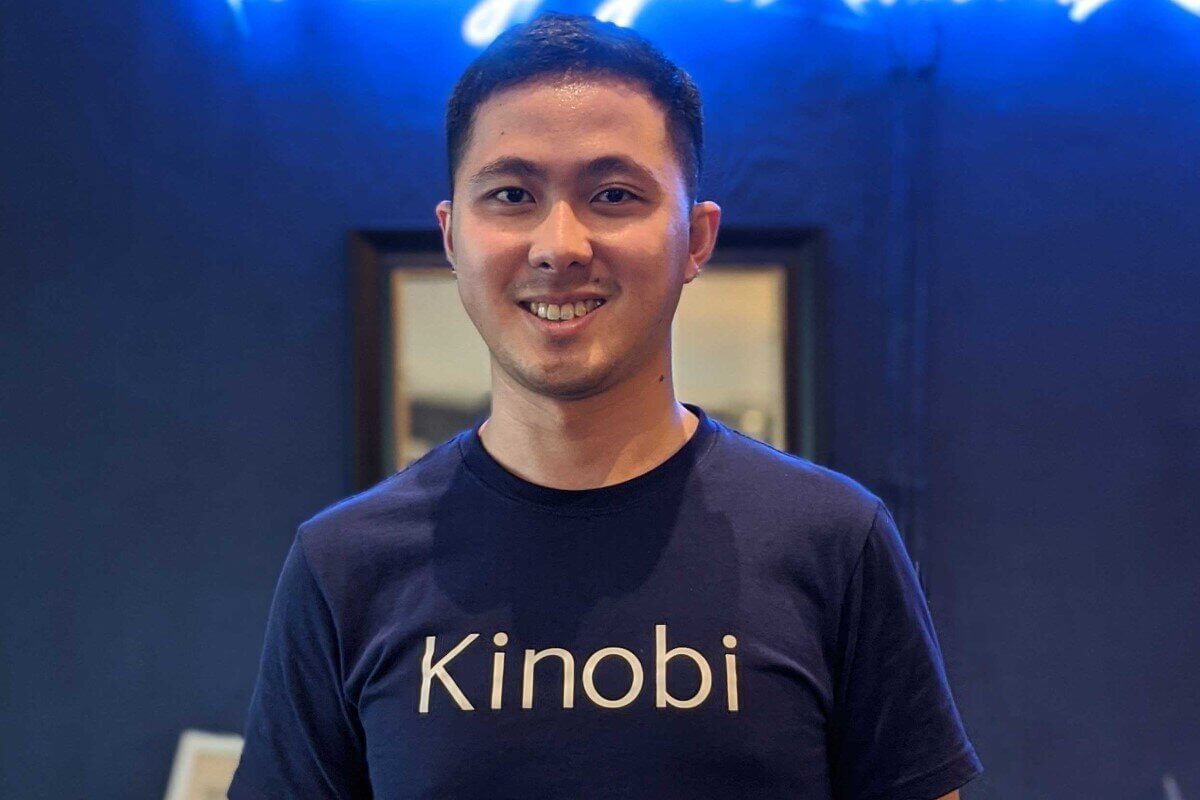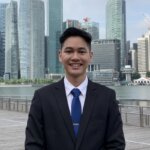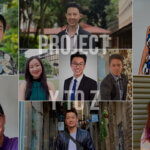Hindsight is 2020 (#HI2020) is a ground up initiative founded and led by SMU Lee Kong Chian School of Business Class of 2020 graduate Jessica Lee Yi Ling. In this series, she uncovers personal stories of resilience, courage and love amidst the crazy year that was 2020. Through the reflections and learnings shared in #HI2020, she hopes to empower internship and job seekers to improve their status quos and encourage aspiring entrepreneurs and volunteers to pursue their passions in 2021.
By Jessica Lee, Alumna, SMU Lee Kong Chian School of Business
Benjamin Wong’s Fintech startup out of Junior College, aggregating all your credit cards in your wallet, may have been an idea five years too early. That however, never stopped this serial self-starter from pursuing his passion in entrepreneurship. Today, this SMU School of Economics alumnus is the CEO and co-founder of Kinobi, a career accelerator for Gen Z-ers. Let’s join him on his mission to help 200 million young people in Asia take charge of their careers.
Here are three key takeaways from Benjamin:
- Being kind is more important than being right.
- The people in your circle should make you feel blessed, not stressed.
- Never lose sight of your mission in life.
Let’s take a trip down memory lane. What were the top three things on your mind during your final year in university?
- I was always thinking about how I could be a Vice President in three to five years upon graduation.
- I wanted to have the latitude to start different things and not be held back by what people say.
- I was clear that I wanted to start a business but at that point, I just wasn’t quite sure when and what it would be.
What is the one thing you wish you knew as an undergraduate?
It’s more important to be kind than to be right. Be known to have a heart. I’ve read somewhere that a person who mentors others, rather than gets mentored, is more likely to get selected as a CEO.
On top of being the founding president of The Mentoring Circle (TMC) at SMU, you were also a mentee and mentor to many. What would you say are the three most important traits to being a great mentee and a great mentor?
As a mentee:
- Be results driven by focusing on charting your path, taking ownership and being accountable for your actions.
- Treat your mentor as an equal by having the mindset that as a mentee, you can bring something to the table too, instead of only receiving.
- Ask questions by recognising that you don’t know everything in life and going in with the objective of learning.
As a mentor:
- Don’t impose your own mentality on mentees—your way is not always the right way and mentees should be given the freedom to chart their own paths.
- Listen—mentorship is not just about spewing advices. Listening is the first step to understanding the unique needs of each of your mentees.
- Support with other networks—allow your mentee to learn from others too. Don’t be possessive, selfish or withhold help offered by other seniors.
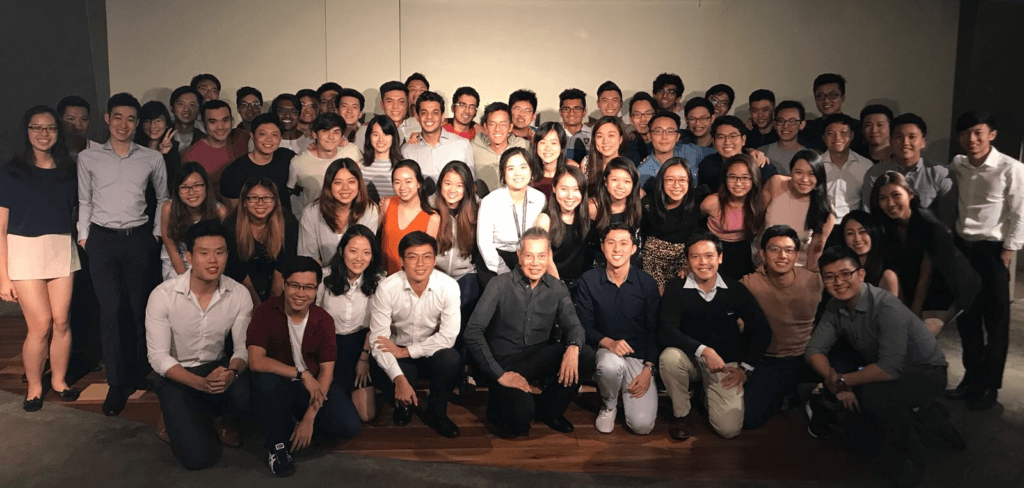
The Mentoring Circle
Share with us the best advice you’ve received from a mentor? How have your experiences as a mentee shaped your approach in mentoring others?
Find your purpose in life. When you think about what you want to be known for at your death bed, it really puts everything into perspective. You become more intentional with every action you take and habit-forming will follow. Knowing this, I ensure that I don’t dictate what my mentees do.
Upon graduation, you joined Alvarium as an investment professional, focusing on private equity and debt as well as real estate. Share with us your experience.
My boss and I were responsible for starting the Singapore office, meaning that we got to develop things from scratch, ranging from slide templates, financial models, deal pipelines to strategy and much more. At work, I was always expected to have an opinion—I wasn’t there just to execute. One thing that I also valued a lot was the trust that my boss had in me. He believed that I could represent the company and take important meetings on my own. Through this, I was able to show how I could add value and establish a network at that too. The takeaway from this is really that age is just a number and it’s up to you to grab opportunities by the horns.
You started Kinobi while you were still at Alvarium. What was it like juggling two different careers?
It was really tough, as the discussions with my Kinobi colleagues started at around the peak period for closing transactions at Alvarium. It was at that point I needed to decide on whether to go big (work on Kinobi full-time) or go home (hands-off from there on).
This was sometime in August 2020—where unemployment in Singapore was the highest in more than a decade and most people were worried about losing their jobs. How did your friends and family react when you shared your intentions to make the career switch?
Entrepreneurial friends and colleagues of mine saw a market need for this business and gave very good tips. My family members knew I had it in me to find my own way from young so they were okay with it. At the end of the day, I knew that I could always find another job with my skill sets.
Let’s compare expectations versus reality. What are some key differences in these two since starting Kinobi?
I think the expectation is that you’ll be working on something you love every day, and thus love your job. Loving what you do doesn’t mean that there won’t be problems. The reality is that there are days you wake up with utmost confidence, and some days you wake up with utmost fear for the future. The truth is that you will not be doing what you love all the time, but you can continue loving what you do.
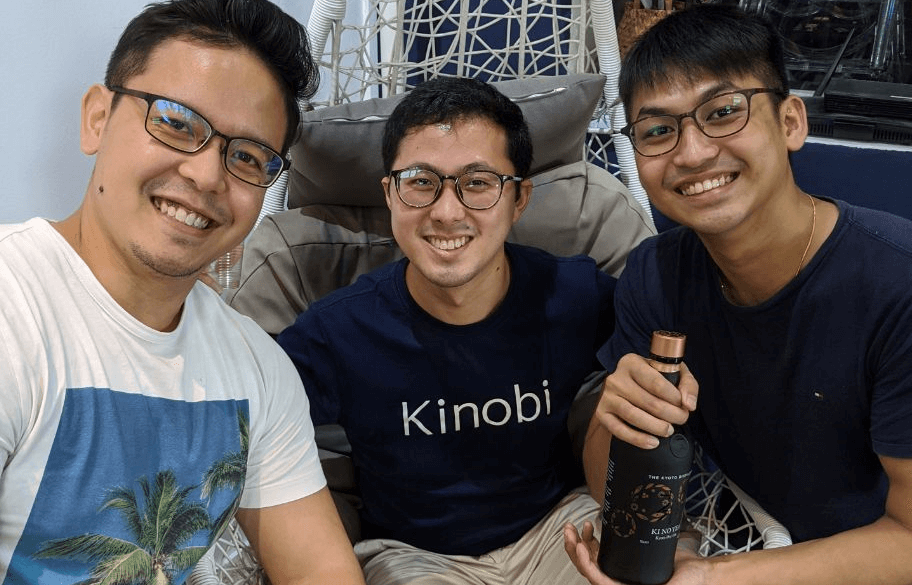
Benjamin (centre) with his Kinobi co-founders
What is the biggest challenge you faced when starting Kinobi?
The biggest challenge will be stepping into the shoes of a CEO. Prior I had several stints as CFO, in brand, strategy, and operations. However, that does not prepare you to be a master at sales and marketing, to manage an entire team and set metrics and targets. This was the fastest “MBA” in existence—I had to speed up my learning.
I understand that Kinobi has hired interns this year. As an employer, what are some qualities you look out for in an intern?
We want to work with rock star hustlers with high ownership and leadership qualities. If you want to condense your learning curve and mature as a leader, join us. We guarantee a fun team. We work and play hard.
What is one piece of advice you want to give internship and job seekers today?
Personal branding is everything. There are three main ways to get considered by a company. You could send in your resume through the general portals, you could reach out to recruiters, or you could get a referral. Of the three, referrals are the most effective in getting hired. Work towards knowing you can get people to vouch for you. This of course, is only possible if they know about you, when you’ve built credibility and you are at the top of their minds when there are vacancies.
You need to dare to put yourself out there and you’ve got to start somewhere. You most definitely don’t want to be in a position where you are only able to apply for a job through a general portal when you’ve already attained more than ten years of work experience.
Work towards knowing you can get people to vouch for you.
Now in the capacity of a serial self-starter, what would you like to say to aspiring entrepreneurs who are still on the fence and hesitant to start their own businesses during Covid-19?
I’d say that if you have sufficient capital to last for at least a year, just do it! Money is a means to an end, and there are some experiences and learnings you can’t buy with money. You can only earn them by getting through the crucible of fire and coming out polished as a diamond. These things shape you as a person and make you a more desirable hire than ever.
Finally, what does Kinobi aspire to be?
We want to be the one-stop career platform that replaces all the career centres around the world—where all 200 million young people in Asia use us from 20 years old when they start their careers, until 60 years old when they retire. At each career pit-stop, we want to better prepare them and match them with companies they love, and companies that love them in return. It is this cycle that will propel Asia into the Golden Age. We want to help Asia take charge of their careers and their lives.
This article has been adapted from LinkedIn for republishing on The SMU Blog with permission. Learn more about Hindsight is 2020 here.
Ready to take a leap of faith with SMU? Learn more about our Bachelor of Science in Economics programme today!

